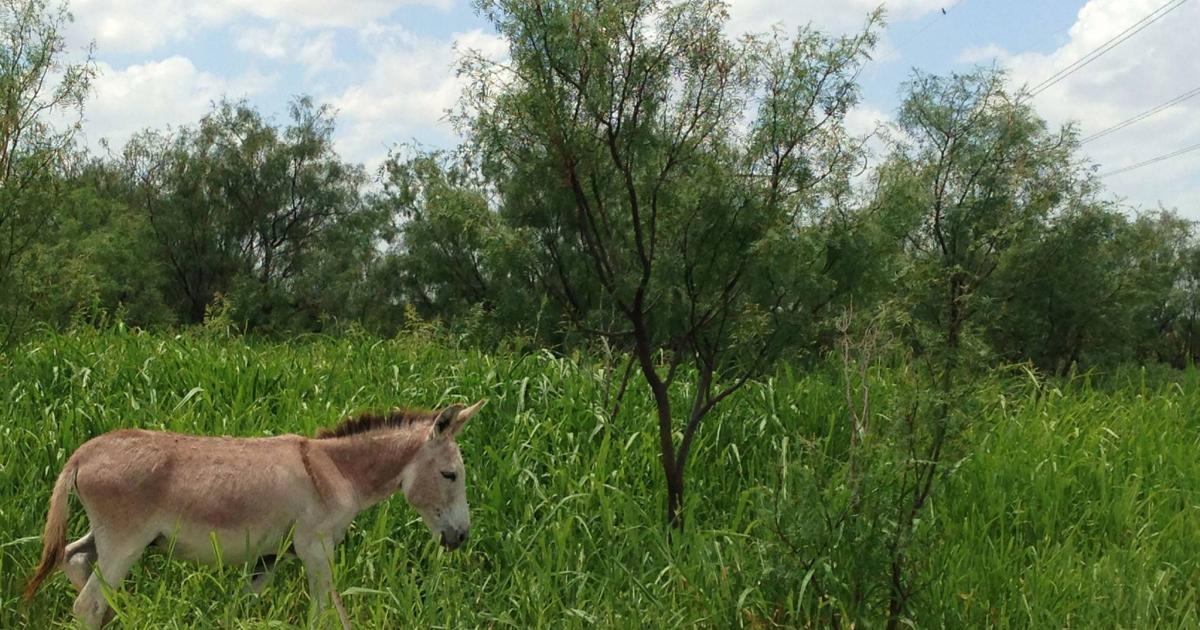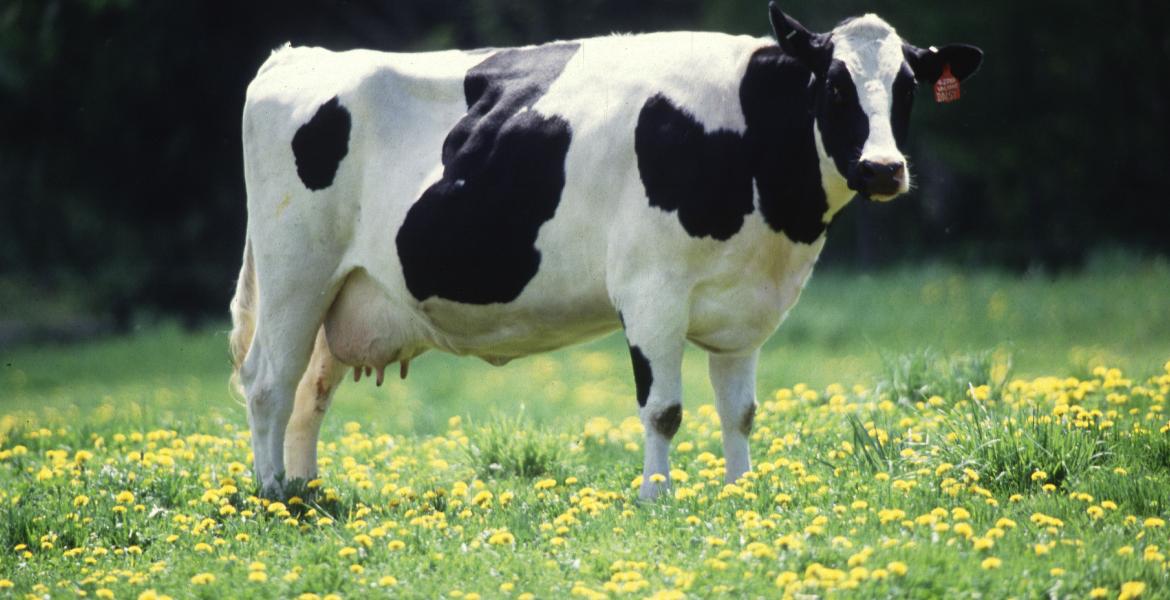SAN ANGELO, TX — On a small farm in Harriet, northeast of San Angelo, David Duncan stands in a pasture with four shaggy donkeys nuzzling his arms and trying to get into his pockets. He scratches one big burro on the ears, as the others vie for his attention. Duncan laments the fact that these donkeys, and the several hundred animals just down the road at the Peaceful Valley Donkey Rescue, may soon represent an endangered species.
"It's crazy to think that the donkey is actually in serious danger,” he said. "Just a few years ago, you couldn't give a donkey away in Texas. The rescue over there filled up with hundreds and hundreds of donks that ranchers had abandoned and dumped onto county sheriffs. But now, the only thing filling up are the kill pens."
The kill pens he refers to are the holding arenas where unwanted equines, horses, donkeys, and mules, are sold to buyers who ship them to Mexico for slaughter.
"There was never a big market for donkey meat." Duncan said. "And there's still not. These days, it's all about the hides."
Duncan, when we met him three years ago, was the Vice President and Adoption Coordinator at Peaceful Valley, the nation's largest donkey rescue located north of San Angelo. Now retired, he works independently, for rescuing donkeys all over the world.

Above: David 'Doc Darlin' Duncan with a ranch favorite named 'Job.' (LIVE! Photo/Joe Hyde)
He said the increased demand for "ejiao,” a major component of Traditional Chinese Medicine, or TCM, is fueling a donkey holocaust, with as many as 40,000 of what many argue are intelligent and emotional animals being slaughtered every week, all around the world, sometimes in the most inhumane ways, even in nations where this slaughter and exporting of hides is illegal and unregulated.
"The case this past month in South Africa, where 5,000 illegal donkey hides were seized and a killing farm was shut down caused a huge outcry and backlash against the hide traders and the people running that farm." he said. "Investigators questioning the employees of the operation said they talked casually about beating the donkeys in their heads with hammers and starting to skin them while they were still alive."
He runs his hands down the back of one of his donkey's necks, as she closes her eyes and leans into him with obvious affection and trust.
"Those men talked like they'd done nothing wrong at all. Some cultures just have different views and beliefs about animals,” he said.
Duncan expects more shock, anger and backlash this week, as the Donkey Sanctuary UK, the world's largest donkey welfare organization, based in Sidmouth, England, releases the final report on its long-running and intensive investigation into the effects of the donkey hide trade in Africa and the world.

Above: The global donkey population is difficult to determine, he said. Most nations, including the U.S., do not count the domestic donkey as "livestock" and so do not report herd numbers to agricultural departments, said Duncan. (Contributed Photo/David Duncan)
The issue, he said, is simply a matter of supply and demand. Formerly an expensive luxury, consumption of ejiao has skyrocketed in the past ten years, due to an expanding Chinese middle class with more disposable income than ever before. Donkey killing is also fueled by an intensive promotional campaign by the Chinese state media, he said.
"They want to export TCM to the whole world." Duncan said, noting that ejiao and other TCM are readily found for sale on Amazon and other commercial websites. "Right now, it’s estimated that they're importing up to two million donkey hides a year, with a potential future demand of 4 to 10 million a year. There're just not that many donkeys in the world to sustain such a thing."
The global donkey population is difficult to determine, he said. Most nations, including the U.S., do not count the domestic donkey as "livestock" and so do not report herd numbers to agricultural departments. On its website, the Donkey Sanctuary estimates the population at 50 million, a figure Duncan believes may be high. "It's all guesswork," he said.
"No matter, you can see that if you are killing two million donkeys a year, and they have such a low yearly reproduction rate, maybe 15 percent maximum with good husbandry practices and regular vet care, which most donks in the developing nations don't get, you are still looking at endangerment of the species, with a possible de facto extinction event on the horizon, possibly within the next ten years." Duncan said. "At the current slaughter rate, the numbers show that there will no more donkeys left in Africa in five years."
He said he was pleased and honored when asked to help the Donkey Sanctuary with this report. Duncan has been researching and writing about the issue of Ejiao and the hide trade for almost two years now, ever since his retirement from active rescue work.
"I stayed in touch with all the donkey rescues and donkey welfare organizations. About a year ago, I started posting Daily Donkey News on my Face Book page, Donkey Rescue World. I was shocked to see so many reports of illegal donkey slaughter and donkey thefts from all over the world, from Pakistan to Columbia." He began to systematically catalog these reports, and sending his complied information to his network of donkey welfare advocates. The Donkey Sanctuary contacted him last summer to help with their investigations.
"I had pages and pages of reports and stats,” he said. "I sent them my files in one go.”
“I think they were overwhelmed. We'd all seen these reports, here and there, but I'm not sure that anyone else had ever put them all together, considered the numbers just reported in the press alone in relation to the total donkey population, or studied the impact of the trade, the donkey thefts in rural communities where people still depend on donkeys as working animals and so on. When the all pieces are put together, it's an alarming and concerning picture," Duncan said.
Duncan hopes the report from the Donkey Sanctuary and the attention it will garner will inform and spur people around the world to take action on the issue. "When the biggest donkey welfare organization on the planet comes out and says point blank that the current rate of ejiao production in China is 'unsustainable', you have to take notice. I'm pessimistic about 'stopping' the trade, or even slowing it down. But right now, there is very little government intervention anywhere in the world. In fact, many nations are complicit and even encouraging the trade. They see it as a new economic opportunity. It's short-sighted and irresponsible, but that's pretty common in government these days," he said.
The big burros are becoming bored with conversation, and lumber slowly away out into the mesquite.
"It's hard to think about the incredible amount of suffering all these hundreds of thousands of animals are going through." Duncan said. "It's slaughter on a scale and at a rate not seen in this world since we wiped out the buffalo. We are going to have to adjust to the idea, and change our attitudes here in America about the donkeys and wild burros. We are going to have to stop looking at them as an 'over-populated, useless' animal and begin to take steps to protect the ones that escape this holocaust."
He advises concerned parties to become informed on the issue, and lend their support to the organizations that are working on donkey welfare. "You've got one of the largest single herds of donkeys in the world right over there." he said, pointing across his field to the Peaceful Valley's Texas Ranch. "It may soon be one of the last."
In the meantime, Duncan lives by a simple motto:
"Love your donkey, and let your donkey love you."
For more on rescuing donkeys, see:
- “Under the Skin - Donkeys at Risk,” a report released Jan 29, 2017 about the worldwide slaughter of donkeys.
- Duncan’s Donkey Rescue World on Facebook here.
- The Peaceful Valley Donkey Rescue in Harriet, northeast of San Angelo off U.S. 67.
Subscribe to the LIVE! Daily
Required






Post a comment to this article here: